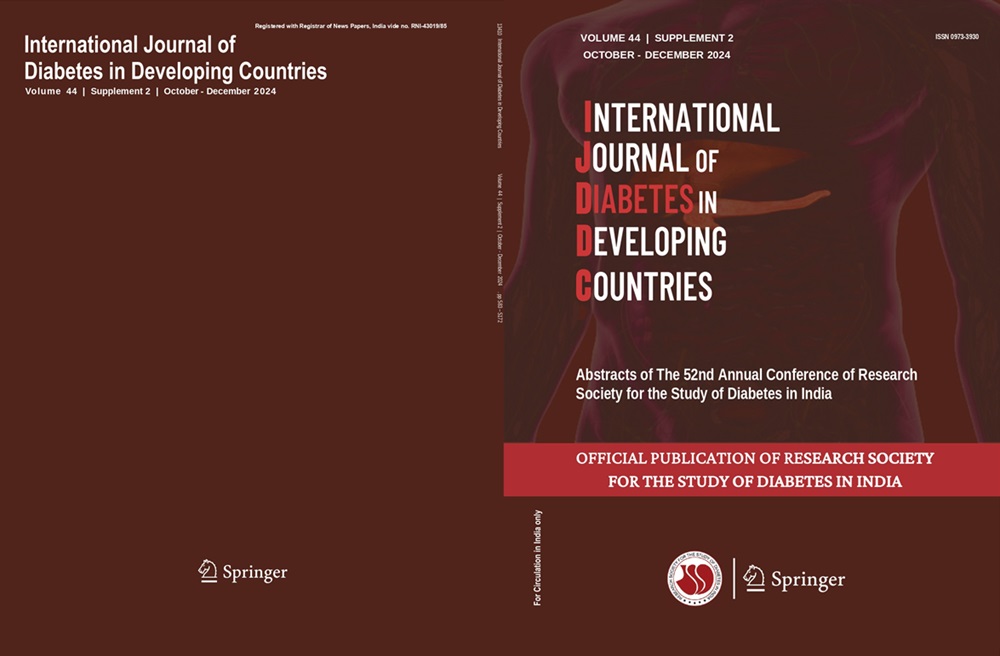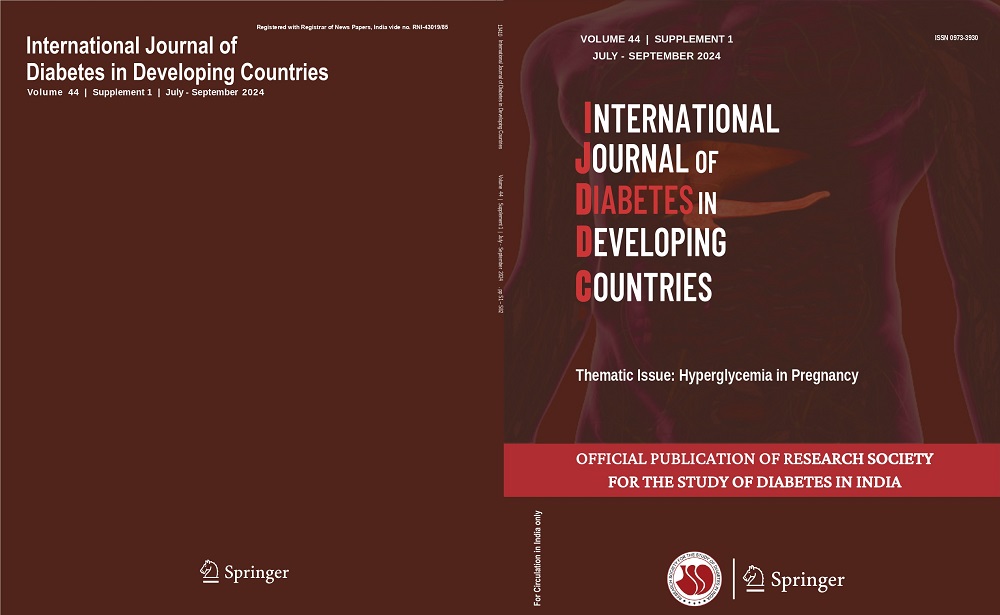Rajesh Rajput, Parankush Upadhyay, Siddhant Rajput, Suyasha Saini, Simmi Kharab
Keywords
T2DM • Hydroxychloroquine • Beta cell function • Insulin resistance
Abstract
Background Very few studies have assessed the impact of hydroxychloroquine (HCQ) on insulin resistance, beta cell function, and inflammatory markers in diabetics which takes paramount importance in understanding the mechanism of its anti-diabetic effect.
Objective To assess the effect of hydroxychloroquine on beta cell function and insulin resistance and inflammatory markers in type 2 diabetes patients uncontrolled on glimepiride and metformin combination. Study design and method 30 T2DM patients were inadequately controlled on glimepiride and metformin combination with an HbA1c between 7.5 and 10% (both inclusive) and were given hydroxychloroquine 400 mg in addition to glimepiride and metformin during the 12-week study period. Beta cell function, insulin resistance, high-sensitivity C-reactive protein (hsCRP), adiponectin, interleukin-6 (IL6), fasting plasma glucose (FPG), postprandial plasma glucose (PPG), and glycated hemoglobin (HbA1c) were assessed at baseline and at 12 weeks after addition of 400 mg hydroxychloroquine.
Results With addition of HCQ, there was a significant improvement in both beta cell function and insulin resistance (p < 0.001). There was also significant improvement in FPG, PPG, and HbA1c along with significant improvement in IL6, hsCRP, and adiponectin levels post 12 weeks of adjunctive treatment with hydroxychloroquine. The changes in beta cell function and insulin resistance correlated significantly with the changes in IL6, hsCRP, and adiponectin levels.
Conclusion Addition of hydroxychloroquine as an add-on drug in uncontrolled diabetes significantly improves the beta cell function and the insulin resistance, along with significant improvement in adiponectin, hsCRP levels, and IL6 levels.




